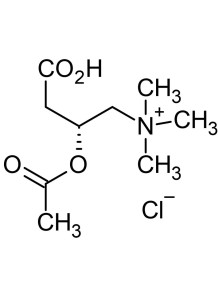Acetyl L-Carnitine HCl (Acetyl L-Carnitine Hydrochloride)
may support fat metabolism and weight loss by enhancing the body's ability to burn fat for energy
Cart
No products
No products

may support fat metabolism and weight loss by enhancing the body's ability to burn fat for energy
Acetyl L-carnitine HCl (ALC) is a modified form of L-carnitine, an amino acid derivative that plays a role in energy production by transporting fatty acids into the mitochondria. ALC is known for its potential cognitive and neurological benefits due to its ability to cross the blood-brain barrier. Here are some of the key health benefits associated with Acetyl L-carnitine HCl:
1. Cognitive Function and Brain Health
Memory Enhancement: ALC may improve memory, particularly in older adults or those with mild cognitive impairment. It is thought to support brain energy metabolism and protect neurons.
Neuroprotection: ALC has antioxidant properties that help protect brain cells from oxidative stress and damage, potentially slowing age-related cognitive decline.
Mood Support: Some studies suggest ALC may help alleviate symptoms of depression, especially in older adults, by modulating neurotransmitter activity.
2. Energy Production
ALC aids in the transport of fatty acids into the mitochondria, where they are converted into energy. This can be particularly beneficial for individuals with fatigue or low energy levels.
3. Peripheral Neuropathy
ALC has been studied for its potential to reduce symptoms of peripheral neuropathy, such as pain, numbness, and tingling, particularly in diabetic patients. It may help regenerate nerve fibers and improve nerve function.
4. Anti-Aging Properties
ALC may help combat age-related decline by improving mitochondrial function, reducing oxidative stress, and supporting cellular repair mechanisms.
5. Fertility Support
In men, ALC has been shown to improve sperm quality and motility, making it a potential supplement for addressing male infertility.
6. Weight Management
ALC may support fat metabolism and weight loss by enhancing the body's ability to burn fat for energy, though evidence is mixed.
7. Heart Health
ALC may improve cardiovascular health by enhancing energy production in heart cells and reducing oxidative stress, though more research is needed in this area.
8. Liver Health
ALC has been studied for its potential to protect the liver from damage caused by toxins or alcohol, thanks to its antioxidant properties.
9. Chronic Fatigue Syndrome (CFS)
Some studies suggest ALC may help reduce symptoms of chronic fatigue syndrome by improving energy metabolism and reducing oxidative stress.
10. Eye Health
ALC may support eye health by protecting retinal cells from oxidative damage, potentially benefiting conditions like glaucoma or age-related macular degeneration.
| Mechanism | - |
| Appearance | - |
| Longevity | - |
| Strength | - |
| Storage | - |
| Shelf Life | - |
| Allergen(s) | - |
| Dosage (Range) | - |
| Recommended Dosage | - |
| Dosage (Per Day) | - |
| Recommended Dosage (Per Day) | - |
| Mix Method | - |
| Heat Resistance | - |
| Stable in pH range | - |
| Solubility | - |
| Product Types | - |
| INCI | - |